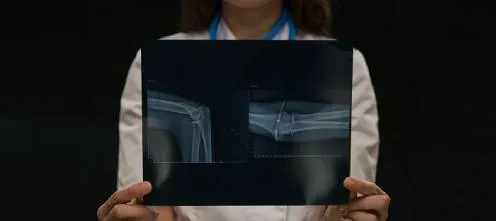
Do I have a Rheumatic disease?
Do not wait to investigate problems!
A common thing between many Rheumatic diseases is that they are difficult to be detected. It can therefore take time before the correct diagnosis is made. The longer a person with Rheumatic disease goes without diagnosis-specific treatment, the greater the risk that the disease will have long-term consequences.
For inflammatory Rheumatic diseases, it can mean permanent deterioration of joints. Therefore, it is best that you who feel symptoms that may be due to Rheumatic disease do not wait to examine them.
How do I find out if I have a Rheumatic disease?
Symptoms such as joint pain, fatigue, stiffness and tenderness can be due to many things. It does not have to be a Rheumatic disease. Pain that disappears after rest or painkillers can be due to, for example, overexertion or flu. BUT if fatigue does not improve after rest, if the pain does not go away with time and if you notice that you are still stiff and tender or that one or more joints are swollen, it is a sign that it may be due to other causes. Then it’s time to find out what’s really going on in the body.


Book an appointment with a doctor
Make an appointment with a doctor as soon as you suspect you may have a Rheumatic disease. If you are normally a healthy person who rarely seeks medical help, it can be easy to postpone this, but there are only advantages to booking a visit as quickly as possible, so do not delay. The doctor can assess whether it is really Rheumatism or if it is due to something else. Here it is important that you as a patient are clear when you tell about your problems.
The doctor must also ask the right questions to know if there is a suspicion of Rheumatism. Pay attention to whether the questions about pain, stiffness and fatigue are followed up with questions about how long the symptoms last, when in the day they occur, if they pass if you move or get worse during physical activity. These are important clues to make a good assessment.
Some Rheumatic diseases need to be assessed by a specialized Rheumatologist. If you visit a general practitioner at a care clinic, he or she can write a referral to a Rheumatology clinic where you can get a diagnosis.
Getting a diagnosis
Should you have a Rheumatic disease, it is therefore important that you get the right treatment as soon as possible. If you get an early diagnosis and good treatment, you have excellent chances of living a completely normal life even though you have a chronic illness. If you wait too long to seek help, joints can deteriorate and lead to deformities that reduce your mobility and physical ability. Therefore, the diagnosis is the starting shot for many who have had trouble getting finally started on a new healthier life with the right treatment.

To book an appointment with Dr. Zaid Mahmoud Abdullateef Alrawi, please call 800 4272 or email at info@healthbayclinic.com









